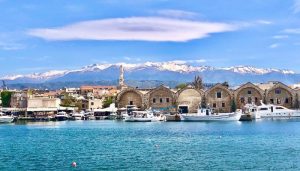
In response to growing concerns about overtourism, Indonesia has announced a moratorium on new hotel developments in Bali. The decision, announced on September 9, 2024, aims to address the increasing strain on the island’s environment and infrastructure caused by rapid tourism growth.
Bali, known for its stunning beaches, vibrant culture, and lush landscapes, has long been a popular destination for tourists from around the world. However, the influx of visitors has led to significant challenges. The island’s roads are often congested, natural resources are under pressure, and local communities are feeling the impact of mass tourism.
The Indonesian government’s new policy will pause the construction of new hotels for at least two years. This move is intended to give authorities time to assess the situation and develop a sustainable tourism plan. Officials hope that by limiting new hotel projects, they can better manage tourism and protect Bali’s unique environment and cultural heritage.
The decision comes after years of growing concerns from local residents and environmentalists. Many have reported problems such as increased waste, pollution, and damage to coral reefs. In addition, the rapid growth of hotels and resorts has led to the loss of traditional Balinese culture and local businesses struggling to compete.
Tourism is a major economic driver for Bali. It provides jobs for many locals and supports a wide range of businesses, from restaurants to souvenir shops. However, the negative effects of overtourism are becoming increasingly evident. In recent years, the island has seen frequent issues with water shortages and waste management.
The moratorium will affect several planned hotel projects, some of which were already in the pipeline. These projects include large resorts and luxury hotels, many of which were set to be built in popular tourist areas. The government has stated that existing hotels can continue to operate, but no new permits will be issued during this period.
Local businesses and residents have mixed reactions to the new policy. Some welcome the move, hoping it will bring relief to overcrowded areas and improve the quality of life for locals. They believe that a pause in new developments will allow the island to recover from the negative impacts of excessive tourism.
One local business owner, Nyoman Sari, expressed support for the moratorium. “The island is beautiful, but the rapid growth has caused many problems. We hope this pause will give us time to address these issues and find a better balance between tourism and local needs.”
On the other hand, some in the hospitality industry are concerned about the impact on their businesses. Hotel developers and owners argue that the moratorium could hurt their investments and limit job opportunities. They worry that halting new projects might also deter future investors from considering Bali.
The government has assured stakeholders that the pause is temporary and part of a larger plan to ensure sustainable tourism. The Ministry of Tourism and Creative Economy is working on a comprehensive strategy to manage tourism growth more effectively. This includes plans to improve infrastructure, enhance waste management systems, and promote eco-friendly practices.
In addition to the moratorium, the government is focusing on promoting less-visited areas of Bali and other parts of Indonesia. By encouraging tourists to explore regions outside of Bali, officials hope to distribute the benefits of tourism more evenly and reduce pressure on the island.
Tourists visiting Bali in the coming years will likely notice changes as the island adapts to the new policy. There may be fewer new hotel openings, but the focus will be on enhancing the quality of existing facilities and experiences. Visitors will also find more emphasis on sustainable tourism practices, such as supporting local businesses and participating in eco-friendly activities.
The moratorium on new hotels is a significant step in addressing the challenges of overtourism in Bali. It reflects a growing recognition of the need to balance economic benefits with environmental and cultural preservation. As the island takes time to adjust, the hope is that it will emerge with a more sustainable and enjoyable tourism experience for both visitors and residents.
Indonesia’s decision to pause new hotel developments in Bali is a response to the problems caused by rapid tourism growth. The moratorium aims to alleviate pressure on the island’s environment and infrastructure while creating a more sustainable future for tourism. As Bali navigates this new phase, the focus will be on improving existing resources and promoting responsible travel practices.



